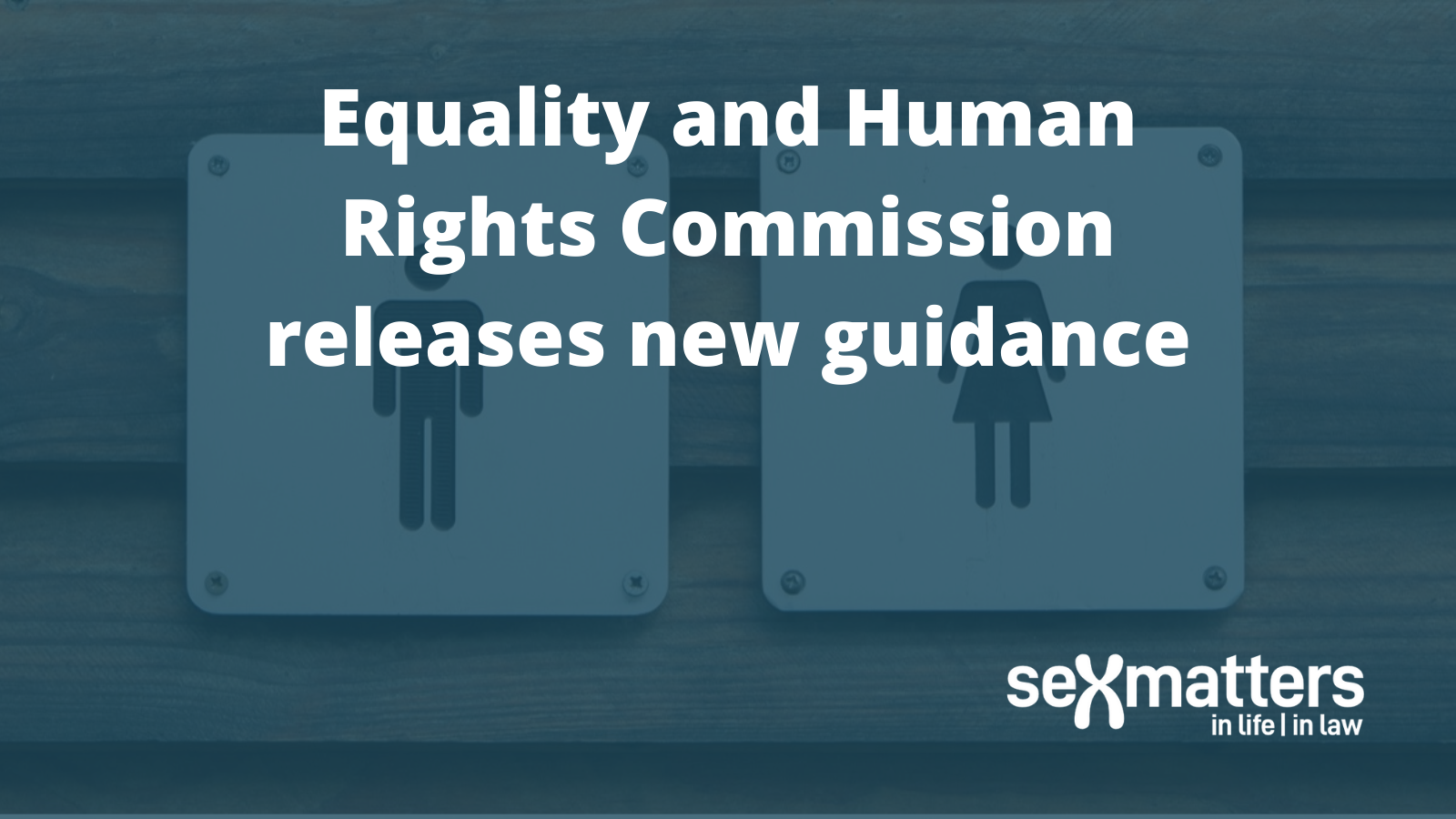Statement on EHRC guidance
Sex Matters welcomes new guidance on single-sex services and calls on EHRC to revise the statutory codes of practice.

4th April 2022: The Equality and Human Rights Commission (EHRC) has released new guidance on separate and single-sex services.
Sex Matters welcomes the new guidance as a very positive and important step in the right direction.
The guidance clarifies that “sex” (as understood in the Equality Act 2010) is binary, and that a person’s legal sex is their biological sex as recorded on their birth certificate.
It recommends that service providers have clear policies, and make the information accessible to everyone, so that all users know what to expect about whether a service or space is single-sex or mixed-sex.
Although a person’s legal sex can be changed with a gender recognition certificate, the EHRC states that this isn’t relevant information for determining access to single-sex services.
Sex Matters says that this clarity is very welcome. “The EHRC’s straightforward explanation should help service providers avoid the difficulties currently plaguing politicians when they are asked questions about the difference between sex and gender identity,” said the Executive Director of Sex Matters, Maya Forstater.
The EHRC says that the Equality Act allows service providers and employers to offer facilities to women and men separately (or to offer them for one sex only) wherever this is a “proportionate means of achieving a legitimate aim” – such as maintaining dignity and privacy. This guidance makes it explicit that single-sex services can be clearly signposted as accessible to people on the basis of biological sex.
The new guidance departs from the 2010 Statutory Code of Practice (COP), which did not include recognition of the need for clear policies, or of the need to balance the rights of different service users. In contrast, the new guidance says that everyone’s rights must be considered, and gives a wide range of examples of everyday situations in which a policy based on biological sex would be lawful – a policy, that is, which excludes all transwomen (male people who identify as women – or, in the terms of the Equality Act, males with the protected characteristic of gender reassignment) from using a service intended for females. Those examples include:
- rape counselling for women
- a women’s refuge
- a women’s fitness class
- communal changing rooms at a gym
- male and female toilets at a community centre.
The 2010 COP, in contrast, incorrectly suggested that female customers’ discomfort about the presence of a transsexual in a single-sex health spa should be disregarded.
Another area where the guidance departs from the existing COP is that it does not include the direction to undertake individual “case-by-case” assessment on whether to allow entry to an opposite-sex space. The removal of this recommendation will help service providers avoid inadvertent indirect discrimination against other service users on the basis of sex.
The guidance recognises that the public want clearly delineated single-sex services for a range of reasons, including privacy, dignity, safety, religion and trauma, and that these are legitimate needs. For example, it says that if a community centre understands that its users would not use the centre if the toilets were open to members of the opposite sex, it can put up signs that make clear that facilities are provided by biological sex, and that a gender-neutral option is also available.
The EHRC is likely to face a backlash for developing this guidance, which pushes back against the Stonewall-sponsored replacement of sex with gender identity, and consequent restrictive reading of the single-sex legal exceptions.
Women’s rights campaigns uniting under the #RespectMySex campaign are calling for political parties to protect single-sex services and recognise sex, not gender identity, in their policies. Others, such as members of the Legal Feminist collective, have called for recognition that there is a conflict of rights and conflicting interests between the protected characteristics of sex, gender reassignment, religion and philosophical belief.
Women’s organisations are increasingly speaking up to defend the provision of single-sex services. Women’s Aid and the Women’s Resource Centre recently released new policy statements to this effect. There has been widespread uncertainty about how to provide single-sex spaces and services lawfully. This new guidance provides overdue and very welcome guidance on how to end the confusion.
The UN last week rejected calls from trans-rights activists to censure the UK’s national human rights body. Meanwhile, women’s rights campaigners who propose clear guidance on the provision of single-sex spaces and services have faced protests and threats of violence.
Maya Forstater, Executive Director of Sex Matters, said:
“This new guidance is a big step forward. It recognises that everyone’s rights need to be balanced, and often the way to do this is with a policy based on biological sex, expressed clearly and simply. The new guidance provides examples of how trans people can be included without undermining other people’s dignity and privacy (for example with ‘gender-neutral’ options), and says that everyone should be treated with respect.”
Naomi Cunningham, Chair of Sex Matters, said:
“The examples are at the heart of the guidance. They show how single-sex spaces are legitimate in a wide variety of everyday and specialist situations. We hope they will give service providers and others the confidence to establish and enforce clear, simple rules. Now the EHRC will need to update the Code of Practice to make it clearer and bring it into line with the Equality Act.”
